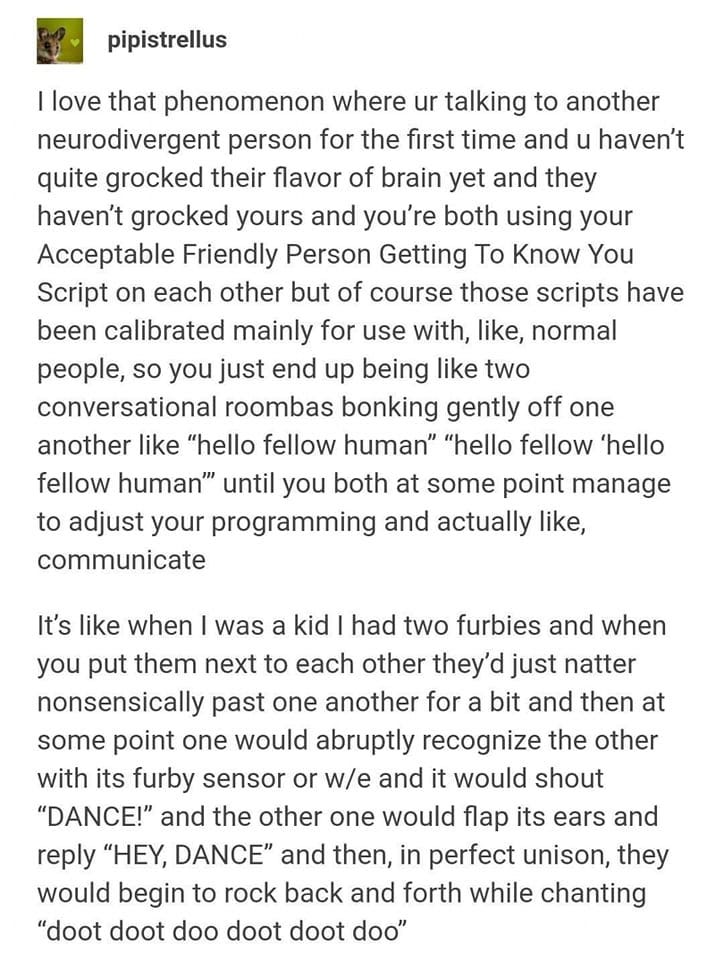Ari Winters is a professional facilitator and creator of The Relating Languages. Growing up, they were drawn to the complexities of human interaction, acting as a bridge between different social circles and communities. This sparked their fascination with facilitating...

Ari Winters is a professional facilitator and creator of The Relating Languages. Growing up, they were drawn to the complexities of human interaction, acting as a bridge between different social circles and communities. This sparked their fascination with facilitating discussions and fostering connections between people from diverse backgrounds. They have worked with organizations such as Google, Dell, Mindvalley, Rebel Wisdom, Kellogg, and the National Weather Service, teaching communication and leadership skills. This week Winters shared their experiences with socialization and creating the Relating Languages Program.
Tell me a little about yourself. Where are you from? What are your hobbies/interests/passions?
My name is Ari Winters. I’m the pseudonym for a team of avid communicators and researchers working on the Relating Languages system. As a representative Ari, I personally grew up in the Northeast and relocated to the South in college. I am fascinated by human communication, especially group dynamics. I also love bouldering, living in community (love that…most of the time ;), and working on my tiny house and farm. I just got married to my life and work partner, and we spend a lot of our time traveling, hosting friend-dinners, and trying to reach Genius on every game of Spelling Bee.
How did you become aware you are Autistic?
A couple of months ago, our friend and PR manager Meg interviewed my partner and I on our relationship with neurodivergence. I found myself saying a lot of things that sounded…suspiciously autistic. I generally dislike labels and had stopped looking for them after being diagnosed bipolar several years ago, but subsequent to that interview, I started doing research and independent testing. I also talked with friends and family about the way I show up. A LOT of pieces fell in place when I read about female autism. At first I felt quite angry, realizing how many things in my life might have been easier for me to contextualize had I known the label sooner. Lately I’ve felt grateful, as I can now gradually realize the places I’ve been masking and start to re-work my life around what is easy for me, and not just “possible with a lot of work”.
What kinds of socialization difficulties did you have as a teenager or young adult?
I grew up largely socially isolated, because people felt much more difficult for me than books. I taught myself to read when I was 4 and began speed-reading soon after. I had very few friends, and the ones I had were usually mentally handicapped. When I got to college, I realized that I had missed some essential life skills! I got into some awkward and even dangerous situations by not understanding the social cues others were giving. When I was 20, I was lucky enough to stumble across a rule-defined communication practice called Authentic Relating. My autism gave me an ability to map connection norms from the outside in a way most other people couldn’t, and I gradually learned social skills through the next decade of practice and teaching.
What strategies, approaches, mindsets (yours or those around you) helped with the difficulties described above?
My dad is also likely autistic. His and my mom’s acceptance and encouragement of my weirdness, teaching me binary math at age 11 and constantly talking about scientific articles at the dinner table, normalized my fascination with ideas over people. This didn’t help me socialize, but I felt normal among my family growing up, and I appreciate that a lot. Most people afterwards didn’t understand my difficulties with time, boundaries, indirect communication or attunement, so I learned to mask heavily. Authentic Relating was very helpful for teaching me standard social skills like directed curiosity, empathetic listening, making direct requests, setting context, and speaking the unspoken. Later, creating the Relating Languages helped frame and disambiguate a lot of the underlying social norms and expectations that I still hadn’t understood, and gave me a way to accept my own languages without masking as much.
Tell me about the Relating Languages program. How did you become involved? What are the program’s strengths?
I got involved in the program early on. I kept noticing that despite the fact that students got a ton of personal and interpersonal value from my trainings, they had a hard time generalizing the skills to their families. They’d get great ideas on how to talk authentically. Then, they’d go home for Christmas and get blasted by the “normies” for asking weird questions or sharing too much vulnerability. I wanted a system that would work for everyone, particularly those in the mainstream who tend to hold more social power and influence than the growth-oriented progressives on the fringes. So when I found the Relating Languages, I thought, “finally – here is a system that explains the disconnect, and offers better skills to talk across the Receptive/Expressive divide of those who prefer Questioning or Observing, and those who prefer Storytelling or Directing.
The main strength of the system is normalizing the way different people relate, and giving us tools to both use our own Relating Language better, and expand into Relating Languages we tend to struggle with. For example, women tend to have a hard time using Directing, even when we need to set boundaries. Neurodivergents are prone to info-dump when they Storytell, or interrogate when they Question. By seeing these as languages rather than personalities, we can understand how to develop our Directing by making small requests, moderate our Storytelling by checking on others’ interest, and soften our interrogating by bringing more Observing of the effect our questions have on others. There’s lots of other powers the system brings, and many more distinctions than the main languages when you get deeper into it, but that’s one of my favorites. It’s been really useful for me to keep the languages in mind when I get into confusing social situations or conflicts with others.
Where do you see well-intentioned autism advocates fail?
I hate to say it, but I don’t follow many. I’ve mostly read informational books on the topic. I don’t learn well through auditory communication, which is most of what exists these days. I can say that if it’s similar to the other identity conversations, a fail point is probably advocating in a way that is Against instead of Inclusive. Most positions polarize against what has happened in the past, and make wrong the perpetrators of the previous norm. I think it’s better to appreciate what happened in the past, why it happened in context, and chart a new course without vilifying the people or history that came before.
Fill in the blank and explain. The world would be a better place for Autistic people if…
..Autistic people apologized less for the way they are, and contexted more to others about how they can accept and support us. We’re going to be late to things. We’re going to talk a lot and not notice social cues. We can be better about directly telling others what we want and need from them. And not judging ourselves for what we want and need, even if it’s different than we hope to be.
The post Autism Interview #209: Ari Winters on Socialization and Relating Languages appeared first on Learn From Autistics.












